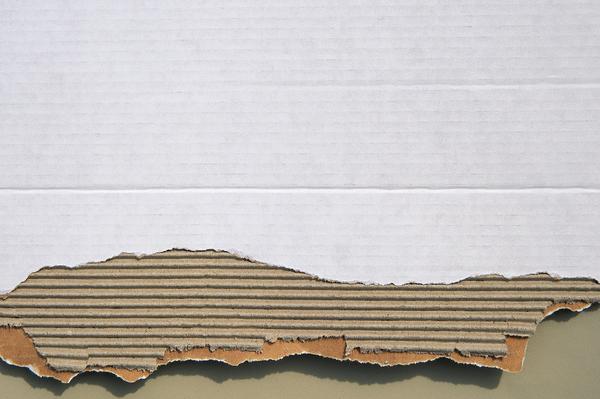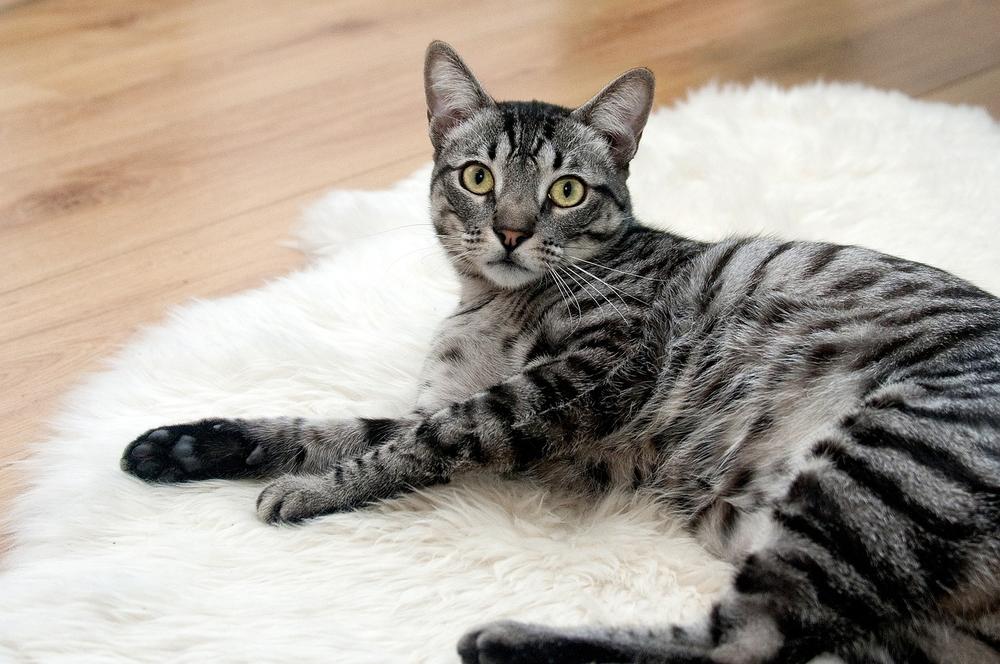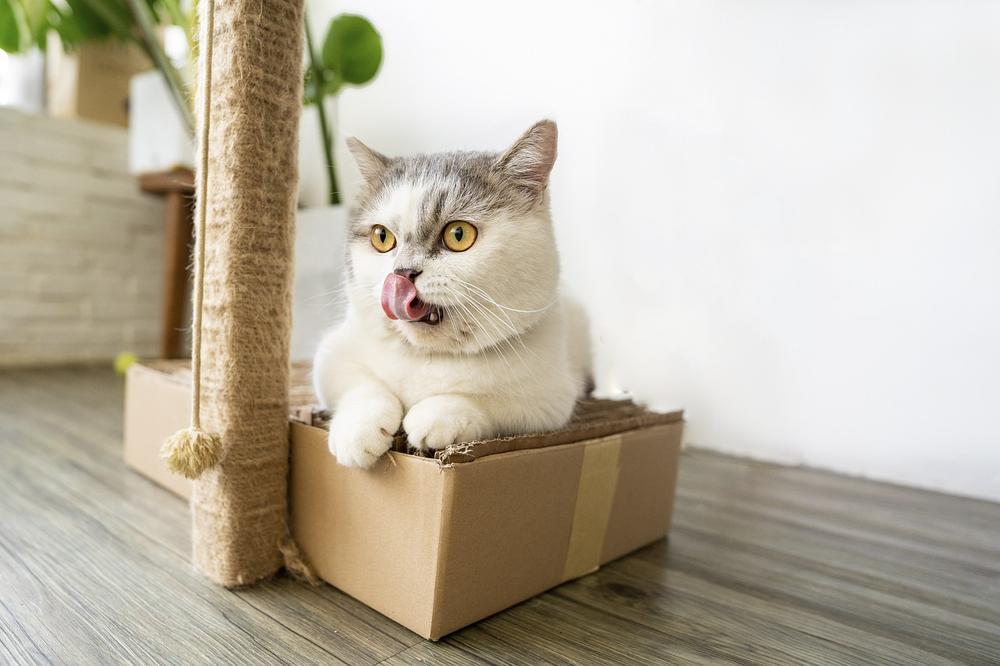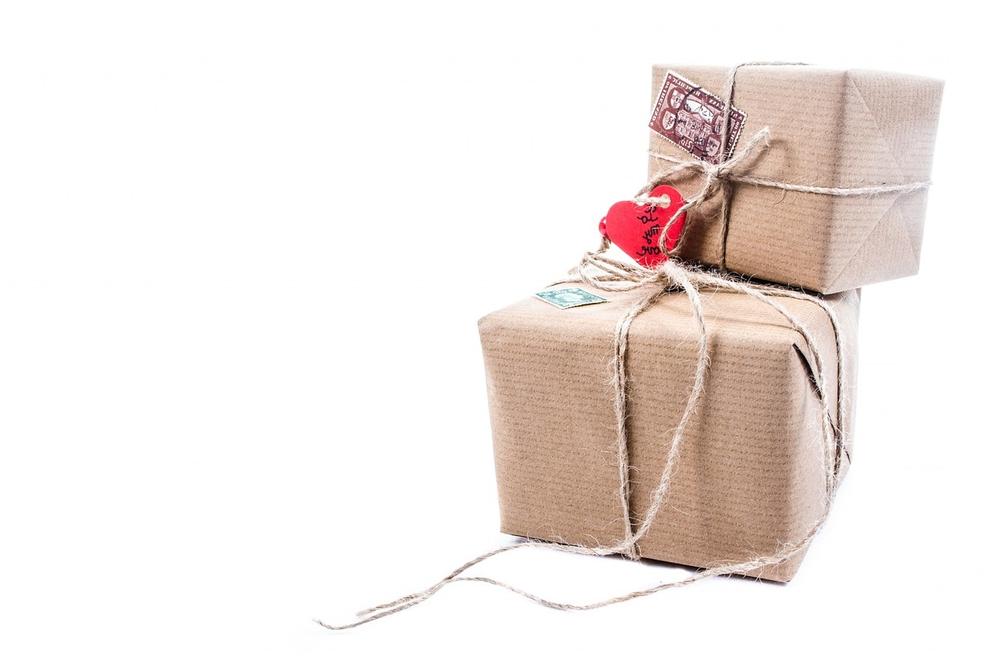Why Does Your Cat Chew on Cardboard: Reasons to Remember

So you've noticed your furry feline friend gnawing on pieces of cardboard, huh?
Can't seem to wrap your head around why? 😺
Well, here's the deal:
This seemingly harmless behavior could be wreaking havoc on your cat's health.
Think dental issues, gastrointestinal problems, and even the dreaded choking hazard.
It's enough to send any cat parent into a frenzy!
Don't panic just yet though, because in this I Care for Cats guide, I'll uncover the truth behind why cats chew on cardboard and put your worries to rest.
Let's dive in!
It Could Indicate a Nutritional Deficiency
Chewing on cardboard may mean your cat is missing out on important nutrients
If your cat has started chewing on cardboard, it could be trying to tell you that it needs something more in its diet.
Cats need a balanced and nutritious meal to be happy and healthy, so sometimes they turn to non-food items like cardboard when they're not getting what they need.
There are a few reasons why this might be happening.
It could be because your cat was weaned too early, or it could have an increased number of parasites. There's also the chance that there's an underlying medical condition causing this behavior.
You can make some changes to your cat's feeding routine to help curb this behavior
To address your cat's cardboard-chewing habit, you can try modifying its feeding routine.
Adding some lean meats (cooked or raw) to its diet can give your cat the nutrients it craves and reduce its desire to chew on cardboard.

Another option is to scatter treats or add more fiber to its meals, which might distract it from this less desirable habit.
However, if you suspect that your cat has eaten cardboard or is experiencing an intestinal blockage, you need to seek immediate veterinary care.
And if you have concerns about thyroid hormone issues, don't hesitate to discuss them with your veterinarian.
Other reasons for chewing behavior and how to discourage it
Chewing on non-food items, including cardboard, could also be a form of marking territory or a way for your cat to communicate through scent.
To discourage this behavior, you can try using sprays that taste bad on the cardboard or even spraying some water near your cat when it starts chewing. Just make sure to avoid using any harmful adhesives, strong chemicals, or coatings on the cardboard that could harm your cat's health.
Keep a close eye on your cat for signs of digestive problems like vomiting, diarrhea, or changes in appetite.
If you notice any of these symptoms, it's best to consult your veterinarian right away to ensure your cat stays healthy and happy.
Main points I'll expand upon further down this article:
- Chewing on cardboard in cats is normal behavior called pica.
- Cats chew on cardboard for different reasons, including teething, exploration, play hunting, and marking territory.
- Enriching a cat's environment with toys and sensory experiences can help prevent boredom chewing.
- Cardboard boxes provide security and a vantage point for stalking prey.
- Safety precautions should be taken to prevent cats from ingesting cardboard pieces.
- Offering alternative objects for cats to chew on is recommended.
- Retail cardboard boxes are generally safe but should be checked for sharp edges or harmful substances.
- Understanding the reasons behind chewing behavior and providing acceptable alternatives can help discourage chewing on boxes.
- Chewing behavior in cats can be a sign of stress or anxiety.
- Chewing on cardboard can provide mental stimulation for cats and engage their natural behaviors.
And here's another thing to consider if your cat is chewing on cardboard...
It Can Be a Form of Play and Exploration
Cats chew on cardboard as a way to fulfill their hunting instincts, providing them with a sense of play and exploration. It also offers a feeling of security and a vantage point. Chewing on cardboard helps indoor cats alleviate boredom and release pent-up energy.
Why is your cat chewing on cardboard?
Is it normal or something to be concerned about?
Let's find out.
First reason, cats chew on cardboard because it's a form of play and exploration.
Cats are hunters by nature, and when they bite into cardboard, they're satisfying their hunting instincts.
It mimics the feeling of catching prey in the wild, with all the tearing and pawing at the box.
Just imagine your kitty on a thrilling hunting adventure!
Cardboard also gives cats a sense of security and a good vantage point.
They love hiding inside boxes, keeping an eye out for anything that moves.
It's like their own little fort where they can observe and stalk their surroundings.
But wait, there's more.
Another reason for cardboard chewing is marking territory.
By scratching and chewing on cardboard, cats leave their scent behind, claiming the box as their own. It's like they're saying, "This is mine!"

Sometimes, indoor cats chew on cardboard simply because they're bored. Imagine being stuck indoors all day with nothing to do.
Chewing on cardboard becomes an outlet for their pent-up energy, giving them some stimulation and relief from boredom.
Now, let's talk about safety precautions.
Be careful of any small pieces of cardboard that could be swallowed.
That's never a good thing.
Remove or hide any hazardous cardboard to keep your cat safe.
To discourage cardboard chewing, offer alternative objects for your cat to gnaw on.
Slowly introduce other chew-friendly items inside old boxes.
Soft blankets, toys, catnip, towels with familiar scents, comfy beds—the choices are endless!
Ultimately, understanding why your cat chews on cardboard and recognizing trigger situations will help you find the best solution. Don't scold your cat; consider using deterrent sprays or other techniques instead.
With these tips, your cat will happily explore and play without nibbling on those cardboard boxes.
And speaking of curious cat behaviors, I have written a guide that may shed some light on another feline habit: kicking themselves.
In my blog post, Why Do Cats Kick Themselves, you'll discover the reasons behind this peculiar behavior.
It Helps with Cat's Anxiety and Stress Relief
Creating a calm and secure environment is crucial in alleviating anxiety and preventing destructive chewing behaviors in cats.

So, here are some tips to help you create that environment for your furry friend:
- Designate safe spaces with comfortable bedding: Cats need their own special spot where they feel safe and secure. Provide them with a cozy bed or blanket where they can retreat to when they're feeling anxious.
- Utilize pheromone diffusers: Pheromones are natural chemicals that cats release to communicate with each other. Using diffusers that emit cat-calming pheromones can help reduce stress levels and promote a sense of calm and relaxation. 😺
- Provide hiding boxes: Cats love small, enclosed spaces where they can hide and feel protected. Having hiding boxes around the house can give your cat a sense of security, especially in unfamiliar environments.
- Address boredom and stress: Boredom and stress are common triggers for chewing behavior in cats. Make sure to provide plenty of toys, scratching posts, and interactive play sessions to keep your cat mentally stimulated and relieve boredom.
- Identify the root cause of fear: If your cat is constantly hiding and showing signs of fear, it's important to address the underlying issue. Take the time to understand what is causing their fear, whether it's a loud noise, a new person, or a change in their routine.
Your cat's well-being is your responsibility. By creating a calm and secure environment, you can help alleviate their anxiety and prevent destructive chewing behaviors.
If you're curious why your cat licks food but doesn't eat it, I have just the solution for you. Check out my Cat Licks Food but Doesn't Eat blog post for possible reasons and helpful tips to address this behavior. Trust me, you don't want to miss this!
And now, let's explore another important aspect of why cats chew on cardboard - their oral health!
It Helps with Your Cat's Teeth Cleaning
Here are 10 tips to keep your cat's teeth healthy:
- Use cat toothpaste and brush their teeth regularly.
- Give them dental treats made for oral care.
- Get chew toys or bones that help with dental hygiene.
- Keep an eye on how they chew cardboard.
- Tell them not to swallow small cardboard pieces.
- Watch over kittens while their adult teeth come in.
- Remember, chewing cardboard doesn't replace dental care.
- Schedule regular vet visits for dental exams and cleaning.
- Be careful of sharp edges on cardboard boxes.
- Pay attention to their chewing habits, it could mean something's wrong.
Regularly following these measures and ensuring routine veterinary check-ups will maintain your cat's excellent well-being and keep their teeth sparkling.
But why do cats have such a strong desire to chew on cardboard?
And is there anything else we can do to redirect their chewing behavior?
Let me unravel this mystery for you!
It Provides Mental Stimulation
Playing with different challenging toys can engage your cat's mind, reducing their desire to chew on cardboard.
To keep your furry friend entertained, try rotating between toys like treat-dispensing puzzles or rolling treat balls. These will pique their curiosity and satisfy their natural instincts.

You might be wondering why cats love cardboard in the first place.
Well, chewing on it actually stimulates their hunting instincts and fulfills their innate behaviors.
It provides mental stimulation for them and allows them to express their instinctual behavior in a satisfying way.
So, next time you see your cat eyeing that cardboard box, remember to offer them engaging alternatives instead!
And that wraps up today's article.
If you wish to read more of my useful articles, I recommend you check out some of these: Why Is My Cat Obsessed With My Feet, Why Does My Cat Headbutt Me, Why Does My Cat Hold My Hand, Why Does My Cat Sit in the Bathtub, and Why Do Cats Knock Over Their Food Bowls
Talk soon,
-Sarah Davis